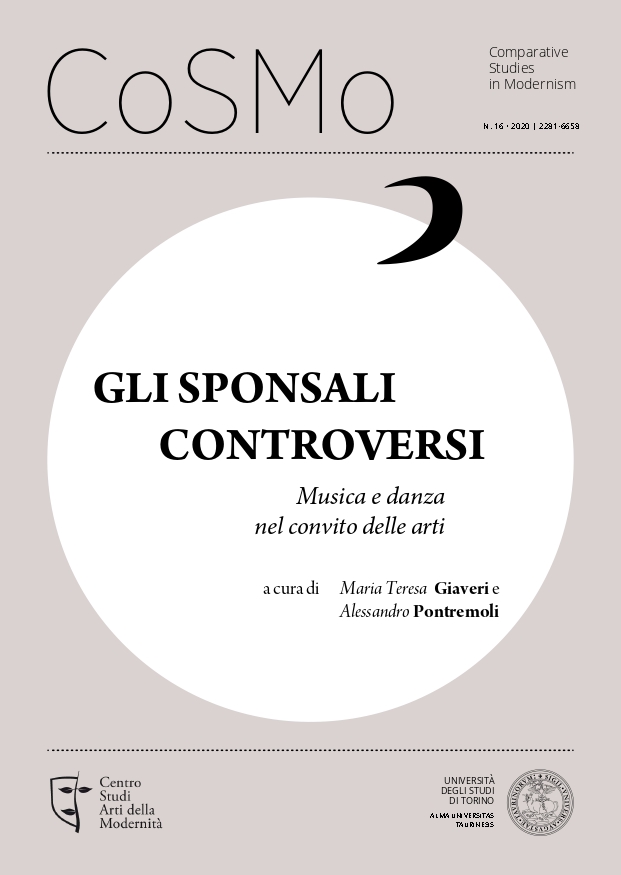The Young Dancer in the Days of the Angels: A Story
DOI:
https://doi.org/10.13135/2281-6658/4619Keywords:
Show, Enthusiasm, Danger, Tenderness, Prophecy, New Era, Change of MentalityAbstract
She danced at a time when the world was changing. Still a young girl, she loved dancing and animals, but the rest of what she was living at her age often seemed tasteless to her. She dreamed sometimes of being a great lover, sometimes a saint, but her mother counted on her for something else. One evening she was dancing in front of her parents and their guest, and her dance was impressive. However, she still had to look for ideas that would move her dance from improvisation to a more elaborate art. Her mother felt threatened by a preacher who maybe had violent disciples. Considering a sort of preventive revenge, she became threatening herself. The guest presented himself as a possible second arbiter between her and the preacher. The first arbiter, the king, unwilling to release the preacher, exile him, or condemn him to death, was slow to make a decision. The theatre of their confrontation also includes the sequences of a strange oratorio, since a new religion began to convert a few people. New ways of thinking and living would soon prevail. Salomé’s story is our story. It is the beginning of the world that has been ours for two thousand years.
Downloads
Downloads
Published
Issue
Section
License
Authors keep the copyrights for their work and give the journal the work’s first publication copyright, which is at the same time licensed under a Creative Commons License – Attribution, which in turn allows other parties to share the work with an acknowledgement of the work's authorship and initial publication in this journal.
Content Licence

You are free to copy, distribute and transmit the work, and to adapt the work. You must attribute the work in the manner specified by the author or licensor (but not in any way that suggests that they endorse you or your use of the work).
Metadata licence

CoSMo published articles metadata are dedicated to the public domain by waiving all publisher's rights to the work worldwide under copyright law, including all related and neighboring rights, to the extent allowed by law.
You can copy, modify, distribute and perform the work, even for commercial purposes, all without asking permission.





